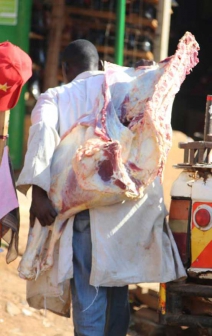×
The Standard e-Paper
Fearless, Trusted News

Government livestock officers have revealed how Nairobi residents are eating dead and sick animals.
The officers tell of an elaborate black market where meat inspectors are threatened with death at slaughterhouses if they refuse to clear sick or dead animals for consumption.